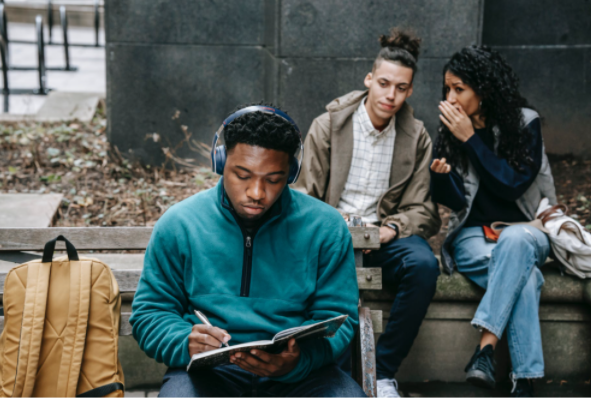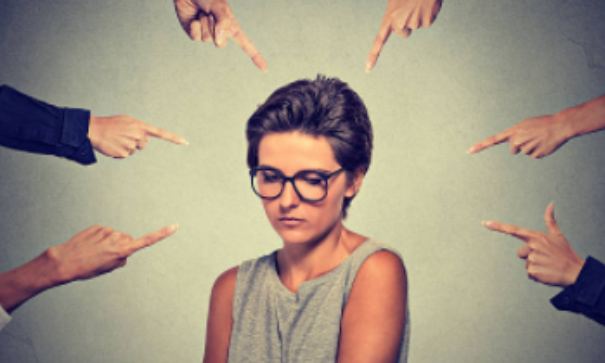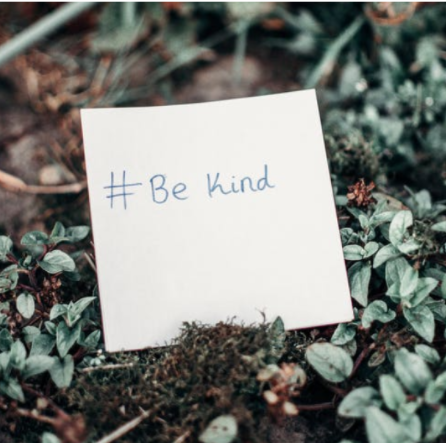*** Note: This blog was written by our former Director of Marketing Preston Simmons.
Kindness is a pillar to healthy relationships with friends, family, significant others and complete strangers because it acts as a catalyst for a pleasant experience or future contact. In this past week’s Friday Focus on the 12th of March, our Director of Public Relations Jane Smith and our former Director of Mental Health Danielle Dionne talked about the power of kindness. One important concept that Jane mentioned is that we don’t always understand everyone’s circumstances and what could be causing them to act a certain way, even if the way that they are acting is angry or impolite. Regarding this, Jane explained that
“We don’t know what other people are going through…. [We should] react with love and know that their behavior is not about us”.
Extending loving kindness to others will enable them to receive the positivity and care that they may need an extra amount of that particular day to help them overcome whatever challenge they are facing. We should not take someone’s words or actions personally if they are not kind to us. If we don’t take them personally, we will be motivated to help that person to the best of our ability and to help other people throughout the day because our feelings will not be hurt by something that someone may not have meant to do. Stating this is not saying that their behavior should be excused, but it simply explains why they could be acting the way they are.
However, if someone is intentionally harming us or putting us down, even after we have asked them to stop, then the appropriate steps should be taken such as distancing ourselves from the person or asking for help from another individual. Sometimes people may say an unkind remark or react angrily at the person they are talking to because other things had happened to them that day has made them react in that way. Most people are inherently kind and that inclination to treat others with kindness comes from a desire to treat others as we would want to be treated. If you are a person that is this way naturally, Jane also has advice for you. She stated that “If you are a kind person, then you need to be kind without judgement”.
Unconscious Biases and Judging Others

Most people find themselves immediately judging others based on their looks, actions, words, likes or dislikes and beliefs. This is referred to as an unconscious bias, which UCSF defines as “Social stereotypes about certain groups of people that individuals form outside their own conscious awareness… These biases stem from one’s tendency to organize social worlds by categorizing”. Some media outlets also propagate this type of thinking, since some of them stereotype individuals in unfair ways based on race, religion, economic status or other factors. To explain why we judge others, Psychology Today said
“Our brains are wired to make automatic judgments about others’ behaviors so that we can move through the world without spending too much time or energy on understanding everything we see”.
While it is convenient for our brains to not expend too much mental energy by not thinking deeply about everything we come across, we should focus on wisely judging the important aspects of our lives. Examples of these aspects may be judging which kinds of people to connect to through personal relationships, deciding which skill to master through our career or determining what hobby to participate in during our leisure time. Another reason why we judge others is explained by Harvard psychologist Amy Cuddy when she explained “What seems to be a split-second judgement of someone is actually you asking yourself two things: Can I trust this person? [And] should I respect this person?”
How to Break the Cycle of Judgement

1. Exercise Compassion:
LondonTFE reminds us that “When you feel compassion for somebody, you automatically look for ways to help them… [Compassion will help you to] imagine what problems and challenges of life other people may experience”. Focusing on feeling compassionate towards other people who you may have judged too harshly and without any context will inspire you to take action to not only cease judging them, but it will also give you insights into what their needs may be in that moment. Do they need a smile, a kind word or someone to have a short conversation with? Or do they need someone to help them with a project that has been burdening them? Being perceptive to how you can help someone will show them that there are people who care about them and that they are not alone in their struggles.
2. Think positively about the person:
WhoWhatWear says to “send a positive intention… for the other person because the moment you can see that person in love and in light is when the judgment dissolves”. Immediately changing how we think of another person that we are judging is vital to be able to see them for who they truly are as a complete individual, and not just as they are speaking or acting in that moment.
3. Remember our own flaws:
TheDailyPositive explains that “I am in no position to judge because I do not have my whole life together… I’m not perfect [either]”. We must put a person’s actions into the context of humanity and remember that everyone makes mistakes on a daily basis. If we remember this before we judge someone, we will be less tempted to cast judgement because we remember that other people could judge us in similar ways.
4. Slowly work to change unconscious biases:
One of the most important steps when we are about to judge someone is to catch ourselves in the moment and think about where those judgmental thoughts are coming from. Are we recalling a statement we heard from a media outlet about a certain stereotype or do these feelings come from a negative past experience? Whatever causes these feelings in ourselves, it is possible to change and be more compassionate and tolerant towards others no matter how they treat us.
Danielle shared a piece of very helpful advice when she said that sometimes we erroneously
think that “someone has to be good to receive kindness… [that there is a] deserving factor when it comes to kindness”. Treating others with kindness shows who we really are as people and what our true intentions are, regardless of the circumstances. Showing kindness does not mean someone owes you kindness. Do not expect something in return. I believe that is a dilemma that people do face. When we show kindness or gratitude or positivity, we expect them to do the same in return. Remembering that everyone deserves to be treated in this way transforms a moment and a personal relationship with someone into a positive experience, whether we know this individual or not. The Golden Rule of treating others as we would like to be treated encapsulates everything that has been mentioned today. When this saying started to be used widely, it set a precedent so that the best actions of humanity would be the standard.
————————————————————–
Facebook: Peace360 Initiative
Instagram: Peace360 Initiative



Comments are closed